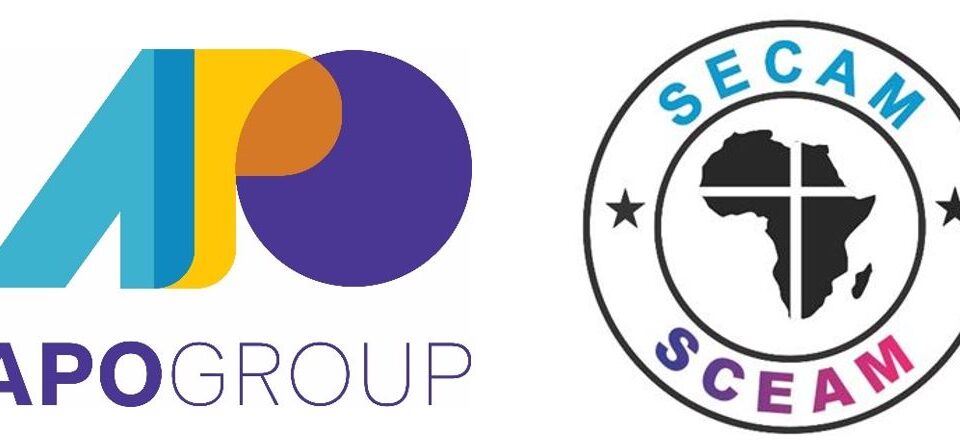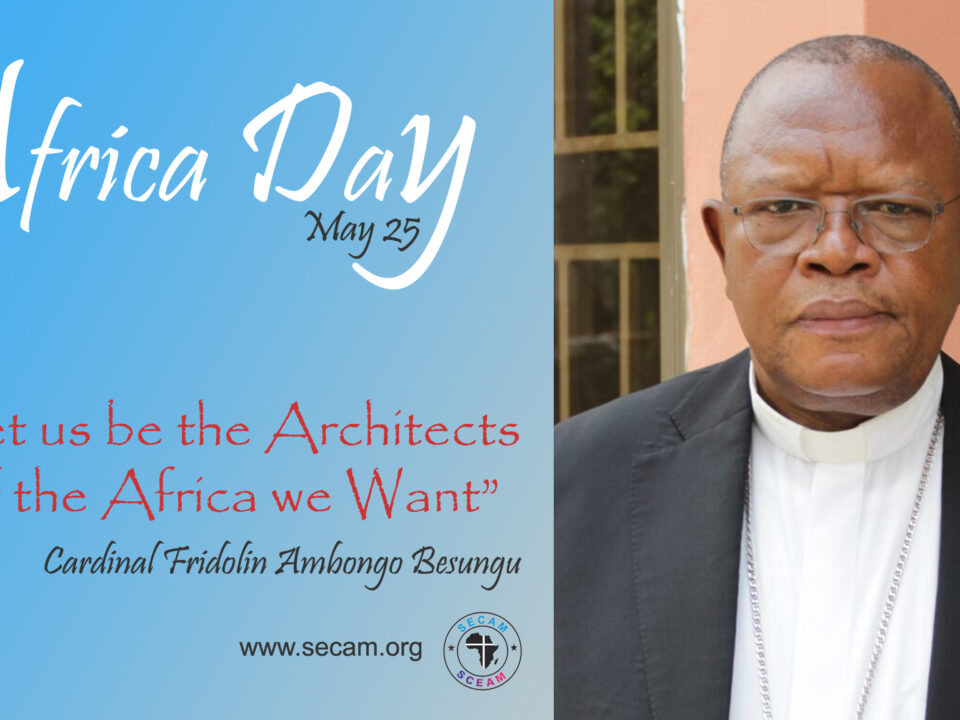- Contact us on - Contactez-nous sur - Contacte-nos em
- +233-30-277-8867/8
- +233-30-277-2548
- secam@secam.org
Report of the Department “Faith-Culture-Development”
Plenary Assembly of SECAM. Luanda 2016
The commitment of the Church in Africa for a profound evangelisation (Ecclesia in Africa) and for a more reconciled society and more attached to justice and peace (Africae munus) has highlighted the issue of culture as a major factor which not taken into account can unfortunately cancel all our pastoral efforts. Some current challenges show us with strong call:
– The upsurge of mystical diseases, phenomena of sorcery and witchcraft, which spare no one, not even the managers and university intellectuals.
– The trampling of governance in Africa with the weight still stronger of ethnic groups on the political life.
– The radicalisation of the interreligious conflict foreign to the African culture of dialogue and tolerance, and the rise of a borrowed secularism that is also foreign to the African culture.
– The persistence of the underdevelopment despite the human and material resources of the Continent, etc.
The objective of «Faith-Culture-Development” is to embrace these challenges through reflection and commitment.
For this reason, it needs to put into place a network throughout Africa, in order to stimulate a new dynamic for research and pastoral action.
In the SECAM Action Plan for the triennium 2013-2016, we have planned for the Department “Faith-Culture-Development”, three axes of commitment:
– Axe 1: Information of the regional Episcopal conferences and the establishment of focal points in each region
– Axe 2: Organisation of the ecclesial subject around some major cultural issues for the future of the African continent
– Axe 3: Establishing a network between the cultural centres of research and the Catholic universities in Africa and Madagascar
For Axis 1, we only had one favorable opportunity: to meet the Bishops of ‘ACERAC’ during their Plenary Assembly in Brazzaville (July 2014). It was a very positive meeting where the importance of the Department “Faith-Culture-Development” was strongly emphasized by all the Bishops.
We took part in the meeting of Secretaries General of National and Regional Episcopal Conferences in Johannesburg (March 2014) who also showed keen interest to the birth of the Department.
But it lacked an explicit mandate of the Bishops so that the focal points per region are identified; these resource persons are no other than the Secretaries General who are already too busy with administrative coordination tasks. These focal points will work with the General Secretariats, Catholic universities and National Commissions of inculturation where they exist.
For Axis 2, we organized or participated in various meetings:
– Mobilisation of the Roman and European diaspora around the canonization of John XXIII and John Paul II who, in terms of inculturation, appeared in the prestigious figure of our ancestors in faith
– Preparation of the two Synods on the Family (the contribution of Africa)
– Statutory meeting ACUHIAM
– Highlighting the figure of Alioune Diop as a model of commitment of a layperson in favour of culture for an African rooting of Christianity and the political liberation of African peoples.
– Preparation of an international symposium on Interreligious and Intercultural Dialogue (ATR-Islam-Christianity in Africa) for the establishment of an education plan for peace through dialogue for the use of schools and university centers.
What appeared important to us here is the lighting of the unique contributions of Alioune Diop, as one of the founding fathers of contemporary African theology, a figure to bring closer to that of Julius Nyerere, a model of commitment for the holiness of the Christian faithful in politics. Other lay faithful figures are still to be discovered and suggested to young generations as the living expression of a mature Church and a theology that has made life and commitment to an effective renewal of Africa.
For Axis 3, we are actively preparing a meeting of African Catholic cultural centers for the establishment of a consortium of the said centres. The Pontifical Council for Culture did, a few years ago, an initial inventory of the cultural centres in Africa. But this initiative was not extended on the field by creating a synergy of these different centres so that by joining their efforts with those of ASSUNICAM they make it possible for the articulation of academic research with practical experience of faith by ecclesial communities struggling with the issues of culture and development.
Which projects for “Faith-Culture-Development” (2016-2019)?
From the progress made since the Plenary Assembly of Kinshasa, two projects appear to us as future projects and the Department of «Faith-Culture-Development” would already tackle them in 2017 through two major conferences:
Project 1: The commitment to the emergence of an African secularism integrating the religious principle
Project 2: The establishment of a Pan-African consortium of Catholic cultural centers for an efficient capitalization of African inculturation experiences.
But there is a third which has a great ecclesial significance:
At the last Ordinary General Assembly of the Synod of Bishops, and especially the commemoration of the fiftieth anniversary of the synodal institution, the issue of synodality emerged as the major ecclesiological issue for the coming years. The echo that this issue has in the young Churches is certainly not the same as it has in the ancient tradition of Churches in the East and the West. But even among young Churches there are different resonances: Africa does not have the same concerns as Asia or Latin America. One might even wonder whether Africa is as well prepared as the other continents to open herself to this ecclesial kairos. She will bring an original answer only if, starting from the deepest experience of the God of Jesus Christ that is at the heart of its culture. To this the Consortium to be created for African Catholic cultural centres could be of great use. It constitutes one of the most credible methods to make effective the rebirth of the School of Alexandria as so desired by Benedict XVI (Address in Yaounde and Africae munus, 137).
It would, no doubt, be one of the most original contributions of the Church in Africa at this time as it prepares to celebrate the fiftieth anniversary of SECAM whose voice is increasingly expected in the heart of Catholicity.
Accra, June 30, 2016
Edouard ADE
FCD coordinator




